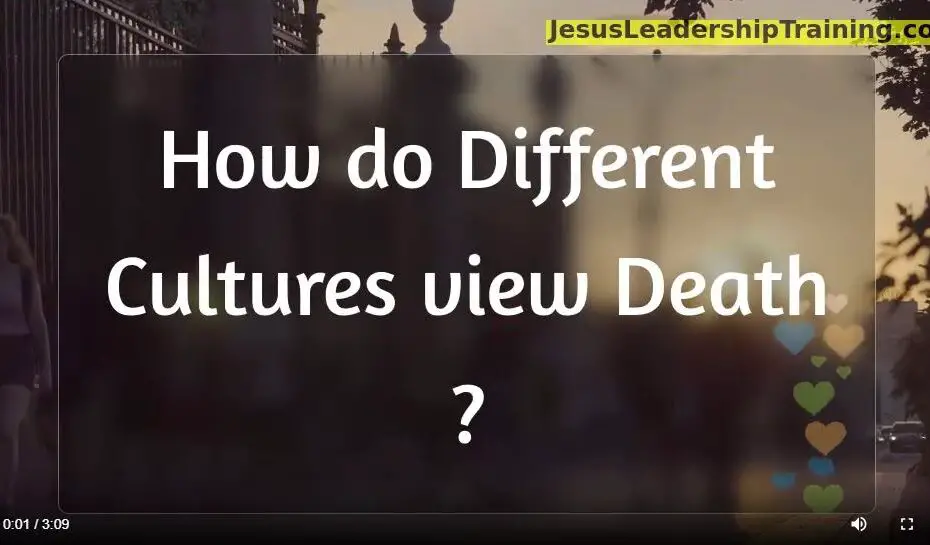Different cultures around the world have unique perspectives on death, which are often influenced by religious beliefs, traditions, and societal norms. These perspectives shape the rituals, ceremonies, and attitudes toward the end of life. Here are a few examples:
- Christianity: Christians believe in an afterlife where souls are either rewarded with eternal life in Heaven with God or punished with eternal separation from God in Hell, based on their faith in Jesus Christ and their actions on Earth. The Bible verse that encapsulates this view is John 11:25-26, where Jesus says, “I am the resurrection and the life. The one who believes in me will live, even though they die; and whoever lives by believing in me will never die.” This shows Christians’ belief in eternal life through faith in Jesus.
- Hinduism: Hindus believe in a cycle of death and rebirth called samsara. The goal is to achieve moksha, or liberation from this cycle. Death is considered a natural part of life’s cycle, with rituals to ensure the soul’s peaceful transition towards rebirth.
- Buddhism: Similar to Hinduism, Buddhists also believe in rebirth but focus on achieving Nirvana—a state of liberation and freedom from suffering. The death process is a crucial moment for achieving a better rebirth, guided by meditation and right actions.
- Islam: Muslims believe that death is a transition to the afterlife, where individuals will be judged by Allah (God) and sent to Paradise or Hell based on their deeds and faith. The community offers prayers to seek forgiveness for the deceased.
- Secular/Non-religious perspectives: Some people view death through a secular lens, seeing it as the natural end of life with no afterlife. They might focus on legacy, memories, and the impact one leaves on the world.
Relevant Bible Verses
“For God so loved the world, that he gave his only Son, that whoever believes in him should not perish but have eternal life.” – John 3:16. This verse highlights the Christian belief in eternal life through faith in Jesus Christ.
Three Main Takeaways:
- Cultural diversity in death perspectives: Different cultures and religions offer varied insights into the meaning of death, the afterlife, and the rituals surrounding it, reflecting a wide range of beliefs and practices.
- The role of faith: For many, faith plays a crucial role in understanding and coping with death, providing comfort, hope, and a sense of purpose or continuity beyond this life.
- Universal human experience: Despite the differences, death is a universal aspect of the human experience. Each culture’s traditions and beliefs offer valuable insights into how humans search for meaning, deal with loss, and celebrate life.



